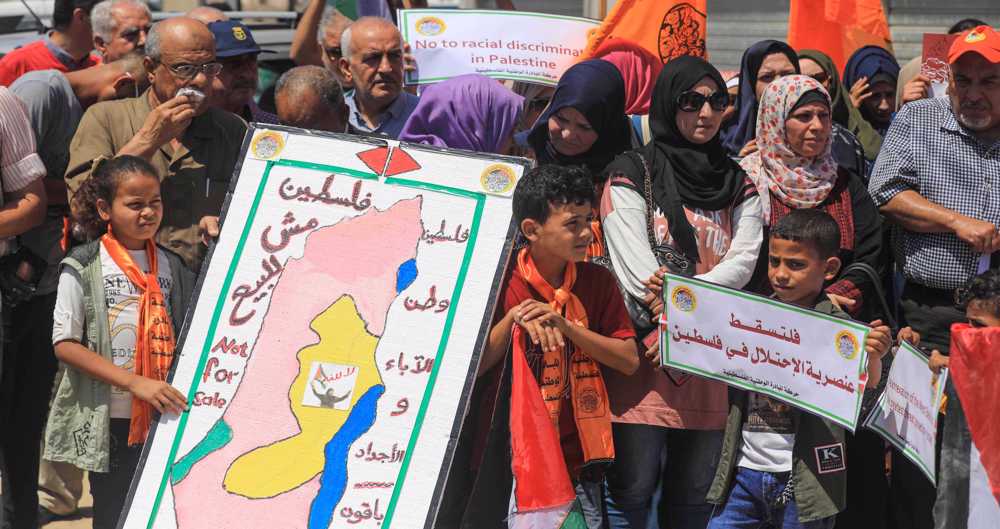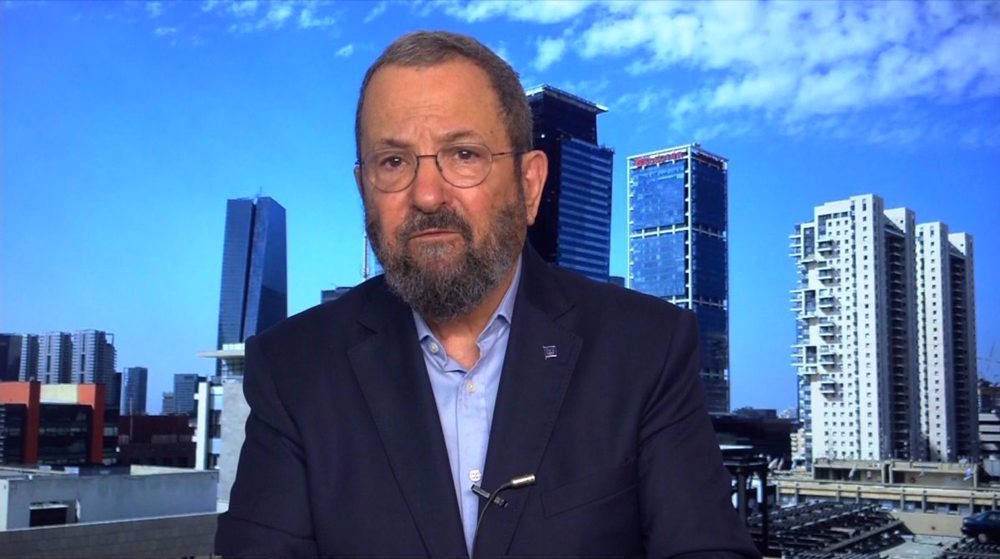Israel land grab bid in disarray amid coalition rift, waning US support
Israeli Prime Minister Benjamin Netanyahu’s highly-contentious scheme to annex parts of the occupied Palestinian territory appears to be in disarray as his key coalition partner Benny Ganz and a group of US lawmakers signal their opposition to the move.
Netanyahu has set July 1 as the date to begin moving forward with the plan to impose the Tel Aviv regime’s “sovereignty” over about a third of the West Bank, including settlements and the fertile Jordan Valley.
As the deadline draws close, Israeli minister of military affairs Benny Gantz, who heads the Blue and White party, suggested on Monday that the annexation plan should be postponed while Israel is dealing with the coronavirus outbreak.
Gantz said fighting the coronavirus pandemic and its economic fallout should take precedence over any political decisions regarding the West Bank.
A source in Gantz’s party quoted him as telling a US delegation, made up of American Ambassador to Israel David Friedman, White House Special Envoy Avi Berkowitz and mapping expert Scott Leigh, on Monday that the July 1 target date was “not sacred.”
“The only holy thing at the moment is getting people back into the workforce and taking care of coronavirus,” Gantz was quoted as saying. “Before making any political moves, we need to help the public to get back to earning a living with dignity.”
In remarks broadcast later, Gantz told members of his centrist party that “what is not corona-related will wait until the day after the virus,” estimating that the health crisis could last another 18 months.
Reacting to Gantz’s comments, Netanyahu told a group of legislators from his right-wing Likud party on Monday that the coalition partner, Blue and White political alliance, was “not a factor” in deciding whether the annexation bid would go ahead as planned.
Netanyahu stressed that he was conducting discreet talks with an American diplomatic team on the issue.
“We are in talks with the US team here in Israel,” he said. “We are doing it discreetly. The matter is not up to Blue and White; they are not a factor either way.”
Elsewhere in his Monday comments, Netanyahu admitted the “complicated” nature of the West Bank annexation, Israel’s Kan public broadcaster reported.
“I have a positive and topical line of communication with the Americans and when I have something to report, I’ll report [it],” he said. “This is a complicated process with lots of diplomatic and security considerations that I can’t get into. We said that [annexation] would be after July 1.”
US President Donald Trump gave Tel Aviv the green light for the land grab in his self-proclaimed “deal of the century,” which was unveiled in January with the aim of legitimizing Israel’s occupation and re-drawing the Middle East map.
However, the US has remained undecided on whether to formally support the annexation measure sought by Netanyahu under the current circumstances.
A senior White House official told NBC News on Sunday that Friedman, Berkowitz and Leigh held several days of meetings in Washington that also involved Jared Kushner, Trump’s son-in-law and senior adviser on the matter.
The discussions, which took place prior to the trio's trip to Israel, were “productive” but inconclusive, he said, alluding to concerns about how the Israeli annexation could affect Trump’s Middle East plan.
“There is yet no final decision on next steps for implementing the Trump plan,” the source said.
‘Annexation won’t happen on July 1’
Meanwhile, multiple American sources have told The Jerusalem Post that Israel will not take steps to annex the Palestinian areas this week.
Some reports said that the Trump administration has cooled its support for the Israeli move amid fears that it might hurt the president’s chances of re-election.
US lawmakers threaten Israel with conditional aid
In another development on Monday, a group of US lawmakers voiced concerns about the planned annexation, calling for using a “combination of pressure and incentives” to prevent it, including imposing conditions on American military aid to Israel.
The letter addressed to US Secretary of State Mike Pompeo is signed by Vermont Senator Bernie Sanders as well as Representatives Alexandria Ocasio-Cortez of New York, Pramila Jayapal of Washington, Rashida Tlaib of Michigan and Betty McCollum of Minnesota.
“Unilateral annexation in the West Bank would alienate US lawmakers and citizens. We cannot support an undemocratic system in which Israel would permanently rule over a Palestinian people denied self-determination or equal rights,” the letter read.
“Should the Israeli government move forward with the planned annexation with this administration’s acquiescence, we will work to ensure non-recognition as well as pursue conditions on the $3.8 billion in US military funding to Israel, including human rights conditions,” it added.
The letter also threatened “withholding funds for the off-shore procurement of Israeli weapons equal to or exceeding the amount the Israeli government spends annually to fund settlements, as well as the policies and practices that sustain and enable them.”
Jordan reiterates opposition
Separately on Monday, Jordanian Foreign Minister Ayman Safadi once again condemned the Israeli annexation plan in telephone conversations with his European counterparts.
Safadi and Belgian Foreign Minister Philippe Goffin discussed over phone efforts to reach an effective international stance to prevent the Israeli measure and protect the peace process, according to a statement released by Jordanian Foreign Ministry.
The top Jordanian diplomat emphasized that the West Bank annexation “will constitute a flagrant violation to international law and undermine the two-state solution and all pillars that have shaped the peace process.”
Goffin, for his part, stressed Belgium’s rejection of the annexation plan and commitment to the so-called two-state framework as "the only means to reach an end to the conflict.”
In another phone call, Safadi exchanged views with his Spanish counterpart, Arancha Gonzalez Laya, on the need to intensify attempts aimed at halting the Israeli annexation.
Iran unveils breakthrough regenerative therapies for severe burns and diabetic wounds
Iran stands as Muslim world’s final frontier of resistance against imperialism and Zionism
Iran advancing diplomacy and defense in parallel: Parliament speaker
Epstein provided New York apartment for ex-Israeli PM Barak: Report
Palestinian BDS National Committee condemns HRW for anti-Palestinian bias
Norwegian ambassador resigns over expanding Epstein-linked scandal
Russia will not launch attack on Europe unless struck first: Lavrov
Israeli forces kill three Palestinians, including teen, in raids across Gaza

















 This makes it easy to access the Press TV website
This makes it easy to access the Press TV website